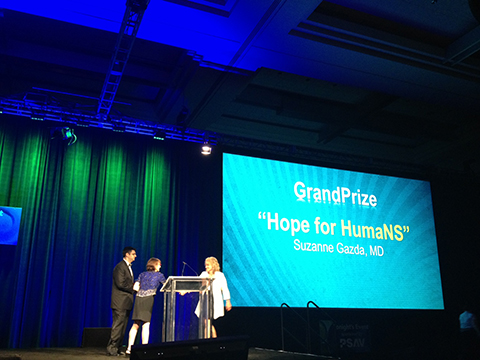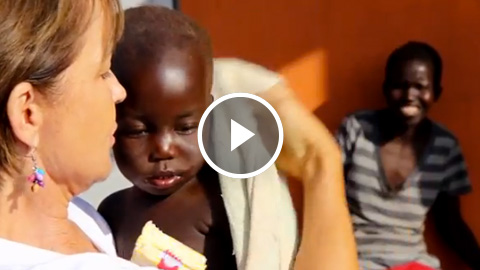[dotted_separator]
[table_row title=”Client”]Hope for Humans[/table_row]
[table_row title=”Purpose”]To call attention to the devastating impact of Nodding Syndrome in Northern Uganda. Some 7,000 children now have the disease, while the cause and cure remain unknown.[/table_row]
[table_row title=”Award”]The film won the grand prize at the Neuro Film Festival, a contest that helps raise awareness about brain and nervous system diseases. This year’s competition included 80 films. Winning the grand prize landed the film (and the disease) center stage in front of the world-class audience of neurologists attending the American Academy of Neurology 2013 Annual Meeting last Friday in San Diego.[/table_row]
[dotted_separator]
The children are ordinary boys and girls, going to school, playing games with their family and friends. One day without warning a drowsiness comes over their eyes; such is their sudden fatigue that they can fall from their feet—into a ditch, into a fire—and not have the strength or presence of mind to pull themselves out. These are the horrors of Nodding Syndrome (NS), a rare neurological disease wreaking havoc in the geographically isolated region between Northern Uganda and South Sudan. Hope for Humans is on the ground marshaling support for the affected children and for the parents, who must eke out a living while literally holding their children up.“It has totally messed up my livelihood,” says one Ugandan woman who has lost five children to NS. “I don’t even get sleep, I don’t go to the garden (to farm). It’s difficult to cook since I have to carry them sometimes, and I don’t have anyone else to cook for me.”
The cause of NS is currently unknown, as is the cure. Hope for Humans aims to rectify that, while delivering much needed love, support and medicine to the communities in need.


